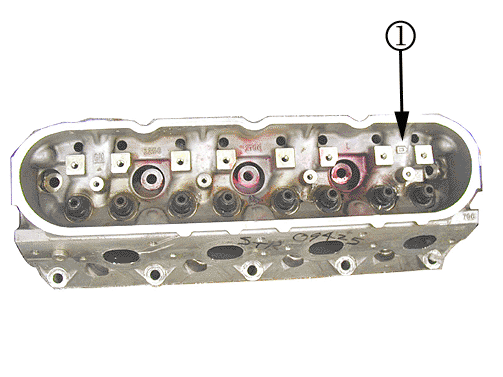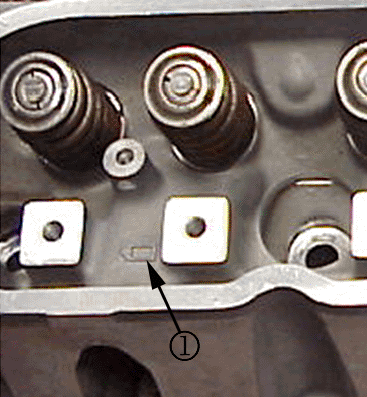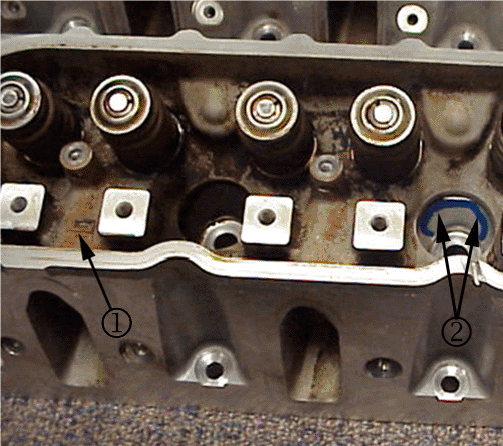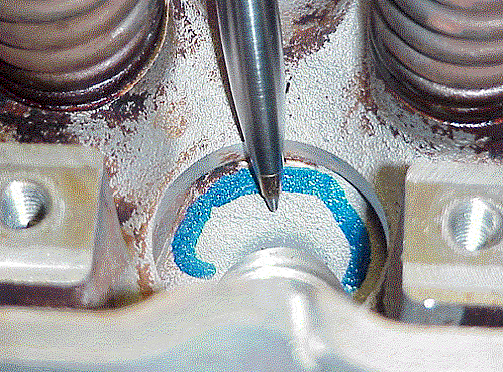Information on Gradual Coolant Loss Over Time with No Evidence of Leak Found

| Subject: | Information on Gradual Coolant Loss Over Time With No Evidence of Leak Found |
| Models: | 2004-2006 Buick Rainier |
| 2001-2006 Cadillac Escalade Models |
| 2001-2006 Chevrolet Avalanche, Blazer, Silverado, Suburban, Tahoe, TrailBlazer Models |
| 2001-2006 GMC Envoy, Jimmy, Sierra, Yukon Models |
| 2001-2004 Oldsmobile Bravada |
| 2005-2006 Saab 9-7X |
| with 4.8L or 5.3L VORTEC® GEN III, GEN IV V8 Engine (VINs V, T, M, B, Z -- RPOs LR4, LM7, LH6, L33, L59) |
This bulletin is being revised to include engine RPO L59. Please discard Corporate Bulletin Number 06-06-01-019A (Section 06 - Engine/Propulsion System).
Some vehicles may experience a gradual coolant loss over time. A very low percentage of cylinder head(s) manufactured with an embossed Castech logo may develop a porosity crack in a very specific area.
Inspect the cylinder head assembly to determine if the casting was manufactured by Castech. This can be accomplished by inspecting for their casting logo located on top of the intake port, under the rocker arm support rail and in the spring deck cavity portion of the cylinder head.
Important: If the cylinder head(s) are Not a Castech casting, follow normal diagnostic procedures in SI to determine the cause of the coolant loss.
Refer to the following illustrations on how to identify Castech casting and/or the very specific areas of the cylinder head(s) for a coolant leak from porosity.

Cylinder head(s) location of the Castech manufacturing casting logo (1).

Close up view of the cylinder head(s) showing the Castech manufacturing casting logo (1).

If the cylinder head(s) is a Castech casting (1), inspect the area around the five oil drain holes for witness marks indicating coolant seepage over time (2).
Important: If No evidence of coolant loss is found on inspection of Castech casting cylinder head(s), follow normal diagnostic procedures in SI to determine the cause of the coolant loss.

The crack location can be found in any of the five cylinder head(s) oil drains. This can be seen as a clean or shiny area, on an otherwise stained surface (1). Pressurizing the cooling system at this time may reveal coolant, air, or a combination, weeping in the described area. If inspection reveals evidence of coolant witness marks (1), replace the entire cylinder head(s) assembly.
